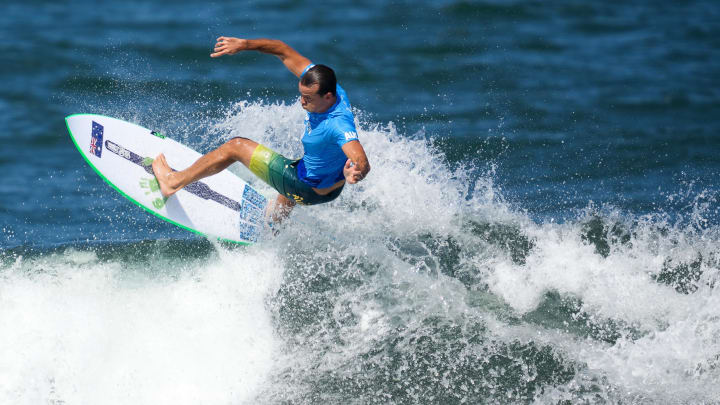Controversial Olympic Surfing Environment Will Be at Forefront of 2028 Argument

While surfing at the Olympics is still in its infancy, having featured in only the past two games, significant changes may be on the horizon. The lackluster waves on day three of the last competition led to a relatively bland finish, prompting many to question whether relying on naturally occurring waves is the best approach moving forward. This result left spectators and athletes alike frustrated, sparking discussions about potential solutions, including the idea of holding the event in a wave pool. While this suggestion seems reasonable to level the playing field, it has sparked considerable controversy within the surfing community, with many opposing the idea.
The opposition to using wave pools for Olympic surfing stems from the belief that it fundamentally alters the essence of the sport, a tradition that many surfers deeply respect. Many surfers argue that the core of surfing is deeply connected to the unpredictability of the ocean, where reading and responding to ever-changing waves is a critical skill. The concern is that wave pools, by creating repetitive and controlled conditions, strip away the essential challenges and excitement of the sport, reducing the interaction with nature to a series of pre-programmed maneuvers. Opponents emphasize that this unique connection to the natural environment gives surfing its thrill and authenticity—something they believe an artificial setting cannot replicate.
Despite the controversy, several prominent figures, including Kelly Slater, have argued in favor of hosting the event in a wave pool. In Surfer Mag, Slater stated, "After seeing both Olympics, I think it’s a very different event to World Tour surfing. It should be held in a wave pool with a specific outlined format to display compulsory maneuvers and entire rides as a combination. It takes the luck out of it, and we saw a lot of luck at Teahupo'o with slow wave heats. It also is easier for the average person to understand."
In the Olympics, ensuring a level playing field is crucial because it allows athletes to compete purely on their skills and preparation, not by chance or uncontrolled circumstances. This is especially significant in a global event where the stakes are high, and every competitor deserves an equal opportunity to perform at their best, unhindered by variable conditions. The debate over wave pools for Olympic surfing is not just about the future of the sport but about the very essence of fairness in the Olympic Games.
Other Olympic sports, such as skateboarding, have embraced controlled environments for similar reasons. Like surfing, street skateboarding is traditionally about making the most of the environment around you. However, the Olympic competition takes on a controlled format, with a designated course and organized setting. This approach parallels the idea proposed by Slater, where a wave pool could provide a consistent, fair platform for surfers to showcase their skills, similar to how skateboarders navigate a structured course in the Olympics. Additionally, other competitive surfing organizations have already begun to hold events in wave pools, signaling a potential shift in the sport's landscape toward more controlled conditions.
While the debate over using wave pools in Olympic surfing continues, it's clear that the sport's future at the games may require balancing tradition with the need for fairness and consistency. With Kelly Slater’s massive “Surf Ranch” just a stone's throw from Los Angeles, the possibility of the 2028 games being held in a wave pool is very real.
